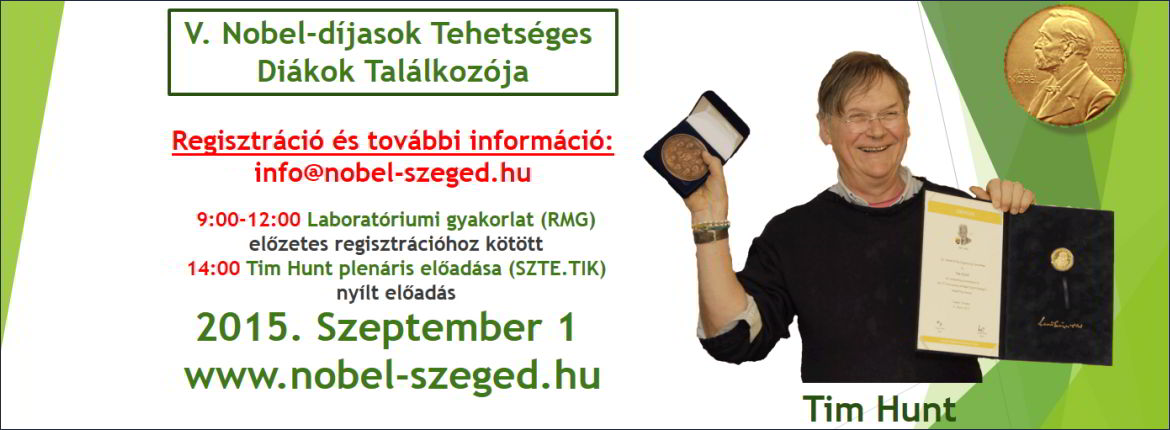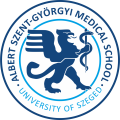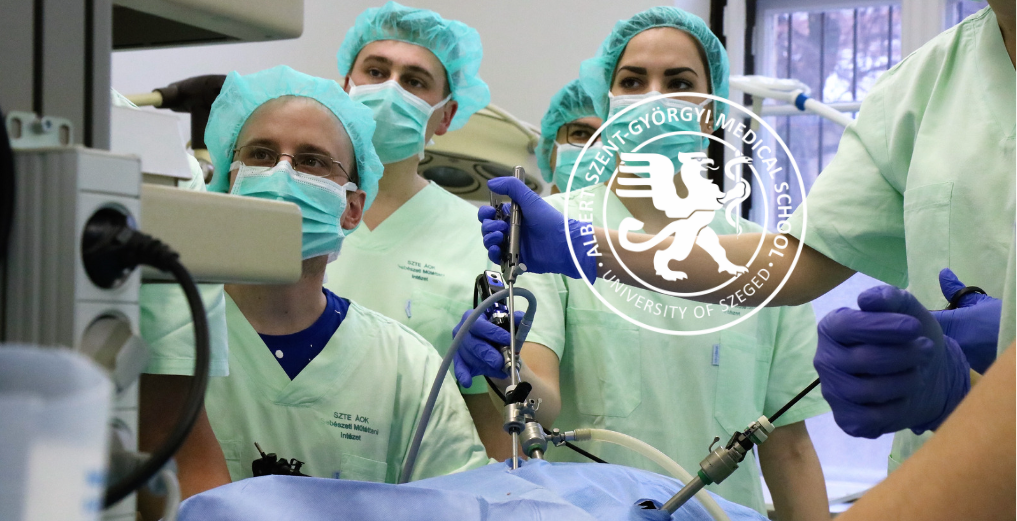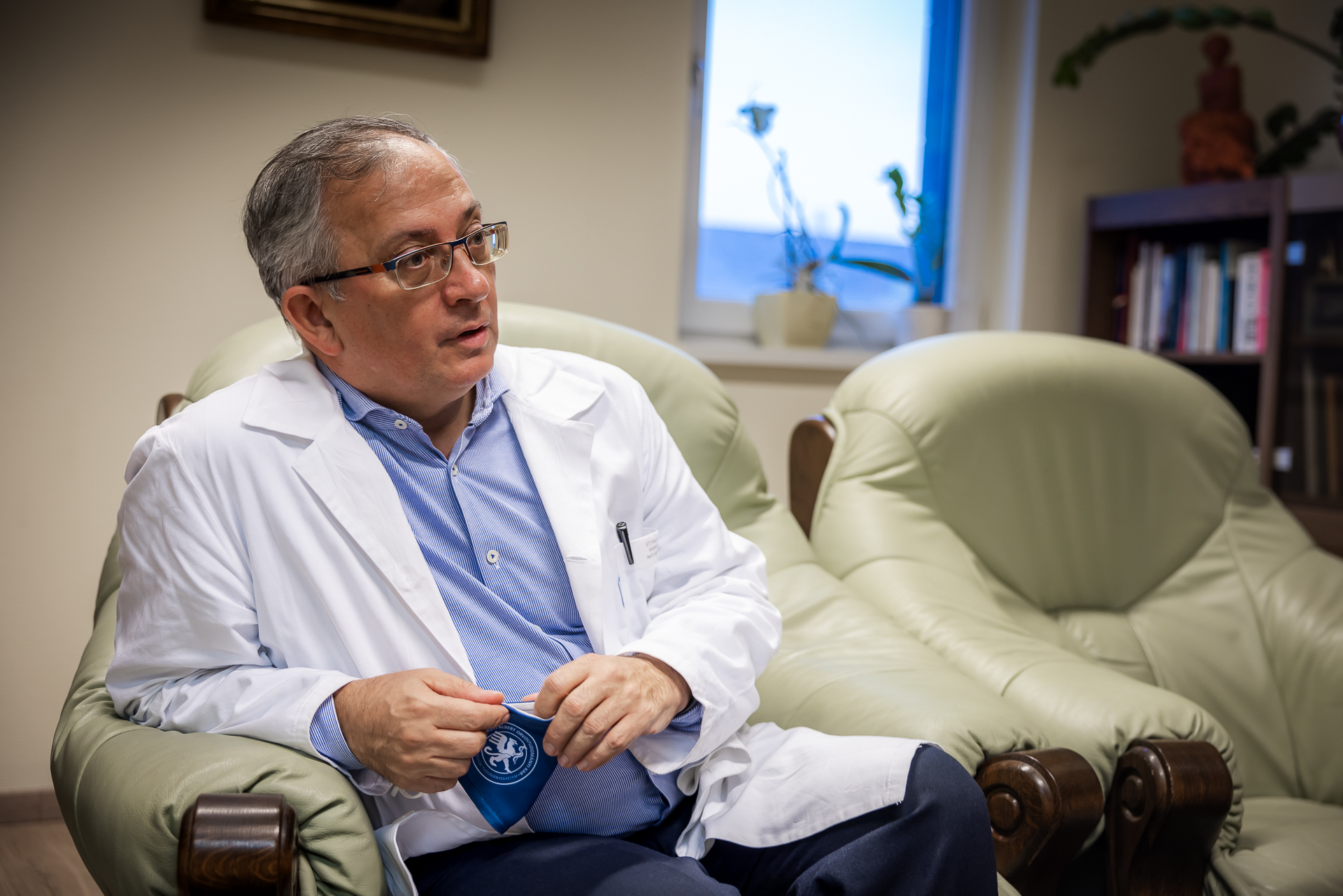
5th Meeting of Nobel laureates and talented students
Sir Richard Timothy "Tim" Hunt FRS, FMedSci (born 19 February 1943) is a British biochemist. He was awarded the 2001 Nobel Prize in Physiology or Medicine with Paul Nurse and Leland H. Hartwell for their discoveries of protein molecules that control the division (duplication) of cells.
Following his PhD, Hunt worked in collaboration with Nechama and Edward Kosower and Ellie Ehrenfeld. While there, they discovered that tiny amounts of glutathione inhibited protein synthesis in reticulocytes and that tiny amounts of RNA killed the synthesis altogether. After returning to Cambridge, he again began work with Hunter and Richard Jackson, who had discovered the RNA strand used to start haemoglobin synthesis. After 3–4 years, the team discovered at least two other chemicals acting as inhibitors.
During summer work in 1982 at the Marine Biological Laboratory at Woods Hole, Massachusetts, using the sea urchin (Arbacia punctulata) egg as his model organism, he discovered the cyclin molecule. Cyclins are proteins that play a key role in regulating the cell-division cycle. Hunt found that cyclins begin to be synthesised after the eggs are fertilized and increase in levels during interphase, until they drop very quickly in the middle of mitosis in each cell division. He also found that cyclins are present in vertebrate cells, where they also regulate the cell cycle. He and others subsequently showed that cyclins bind and activate a family of protein kinases, now called the cyclin-dependent kinases, one of which had been identified as a crucial cell cycle regulator by Paul Nurse.
In 1990, he began work at Imperial Cancer Research Fund, now known as the Cancer Research UK London Research Institute in the United Kingdom. He is a member of the Advisory Council for the Campaign for Science and Engineering. He also sits on the Selection Committee for Life Science and Medicine, which chooses winners of the Shaw Prize.





